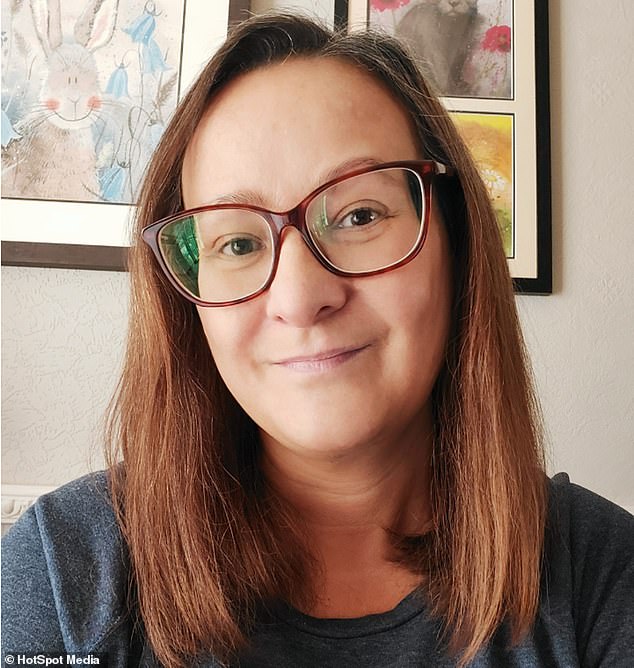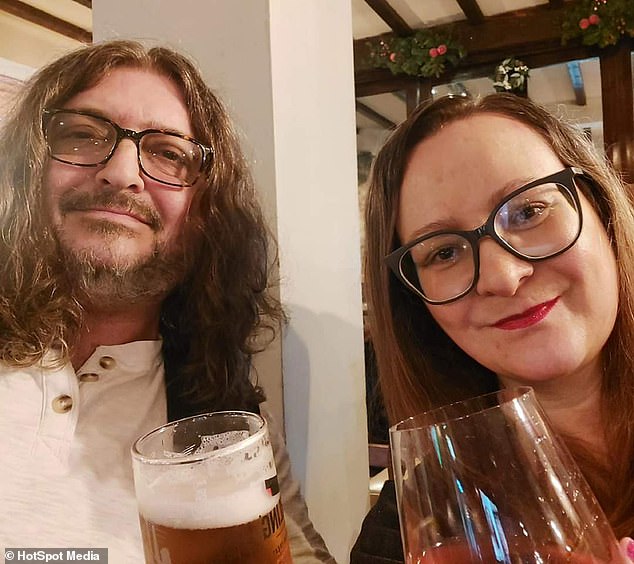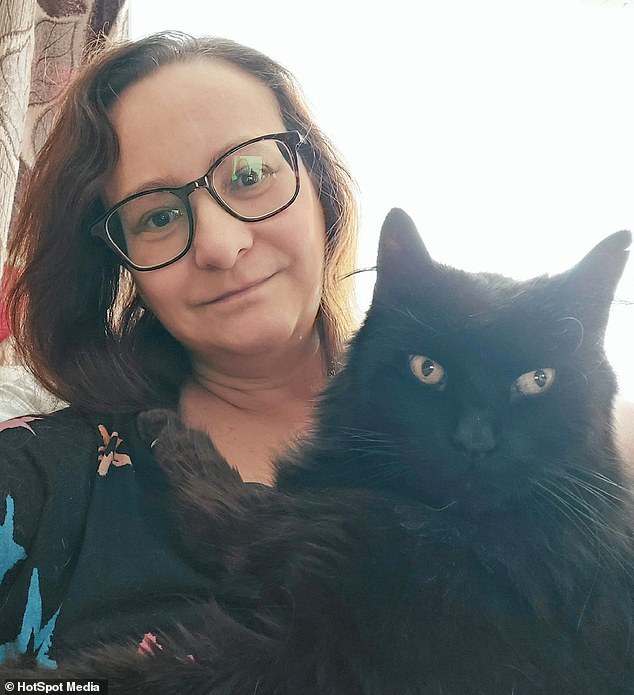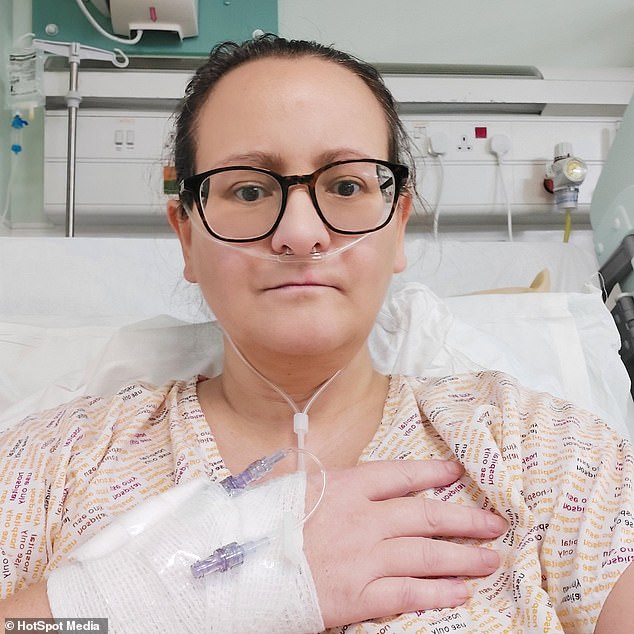Doctors said my chesty cough was ‘flu’ – but it was killer sepsis that left me fighting for my life in intensive care and temporarily disabled
A municipal worker was temporarily disabled after doctors mistook life-threatening sepsis for the flu.
Denise Devoto, 52, was struck with what she thought was a terrible cough and cold in December 2022. She began having coughing fits that left her feeling like she had “broken a rib.”
Despite feeling so weak she could not stand and having severe chest pains, two doctors concluded she had a common flu infection and advised her to go home to recover.
However, within a few days her lips began to turn blue and she had difficulty breathing.
Her husband, Mark, 62, called an ambulance and paramedics rushed her to hospital, where doctors discovered she was suffering from sepsis, a condition in which the body overreacts to an infection.
Denise Devoto, 52, from Sheffield, was sent home twice by doctors after they missed life-threatening sepsis and instead thought she had a cold.
Her condition deteriorated rapidly and she was admitted to intensive care, where she fought for her life for five days.
Fortunately, Mrs Devoto, from Sheffield, survived, but her recovery was difficult, including rehabilitation in the thoracic ward to learn how to breathe and walk unaided.
For four months she was unable to leave the house for fear of contracting the infection again.
It was not until a year later that she was able to go up and down the stairs independently.
“My recovery was very difficult,” she said. “I couldn’t walk up the stairs and I was sleeping 18 hours a day.”
‘I also suffered from my mental health and after three months I even started losing my hair.
‘I couldn’t have done it without Mark and our cats.’
Ms. Devoto’s ordeal began on December 9, 2022, when she woke up in the night with a sharp pain in her rib cage.

It took five weeks for Mrs. Devoto to be discharged from hospital and to learn to use her lungs independently again.

She describes the agony of sepsis as feeling like she was ‘going to die’. Pictured here with her husband Mark
She didn’t think much of it, but as the days went by she began to feel unwell, and within a week she had developed a full-blown cough and cold.
Two nights later she had a terrible coughing fit that made her feel like she had broken a rib.
‘The next morning my husband took me to the walk-in center, where a doctor thought I had a blood clot in my lungs.
‘I had to go to the hospital, but the pain just got worse. I couldn’t even stand.’
At the emergency department of the Northern General Hospital in Sheffield, a doctor diagnosed her with flu and sent her home with painkillers.
But the next day she started vomiting mucus.
‘I thought I had a chest infection too, so I called my GP, who prescribed me antibiotics.

Mrs. Devoto has faced many difficult moments since the beginning of her ordeal, but she says she is grateful to her husband and cats for pulling her through.
‘But that afternoon I started to feel out of breath, my lips had turned blue and I had severe diarrhea.
‘I called my GP again and he told me to call an ambulance.’ Within ten minutes, paramedics arrived and took Mrs Devoto to the Royal Hallamshire Hospital in Sheffield, where she was put on oxygen before being transferred to the infectious diseases unit.
There she was given antibiotics, fluids and painkillers.
Doctors explained that the “flu” was in fact the deadly pneumonia that had caused sepsis.
Her organs struggled to get enough oxygen.
“I didn’t understand the gravity of what that meant,” Ms. Devoto said. “But I remember feeling like I was going to die.”
By Christmas she was feeling a little better.
But it wasn’t long before she started to go downhill again. Her breathing became worse, along with the pain in her lungs and ribs.
The following week, a CT scan and X-ray revealed a large bilateral pleural effusion, a collection of fluid, in her lungs.
“That’s why I had trouble breathing,” she said. “I also had three broken ribs from coughing and a partially collapsed right lung.”
She was taken back to the Northern General Hospital, where she had a drain inserted to remove four litres of fluid from her lungs.
But the infection still hadn’t gone away and she was referred for another CT scan, which showed that the infected fluid in her lungs had clotted.
Four days later, Mrs. Devoto underwent surgery in which surgeons collapsed her lung to remove the infection.

Mrs Devoto now wants to spend time helping people affected by sepsis and volunteers with the UK Sepsis Trust.
She was then given a blood transfusion and intubated for a day to help her body recover. She spent six days in intensive care, after which she had to “relearn” how to use her lungs.
She was finally discharged in January 2023. However, it wasn’t until April that she felt well enough to leave the house.
In the 18 months since her illness, Ms. Devoto has tried to help others who have gone through a similar experience by volunteering as a peer support worker at the UK Sepsis Trust.
“I have a completely different outlook on life now,” she said.I listen to my body much better now and have learned not to worry about unimportant things.
“I consider myself lucky.”
